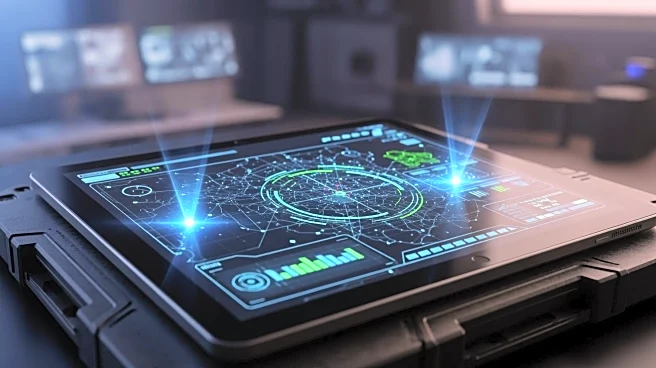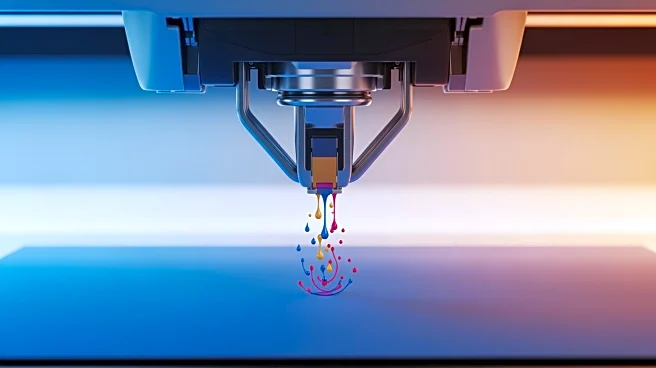What's Happening?
Qualcomm has announced its fiscal fourth-quarter results, revealing a revenue of $10.4 billion and an EPS of $2.77, which aligns with the upper range of its guidance. The company has experienced substantial
growth in its automotive and IoT sectors, with a 21% and 24% year-over-year increase, respectively. This growth is part of Qualcomm's strategic diversification beyond smartphones, focusing on AI PCs, automotive, IoT, and robotics, supported by its Snapdragon and Dragonwing architectures. Additionally, Qualcomm is set to acquire Arduino, a major open-source hardware and software platform, to enhance access to its Dragonwing AI processors and promote AI development across various industries.
Why It's Important?
Qualcomm's expansion into automotive and IoT sectors signifies a strategic shift that could have significant implications for the semiconductor industry. The company's diversification efforts are aimed at reducing dependency on smartphone sales and tapping into emerging markets such as AI PCs and automotive technology. The acquisition of Arduino is expected to bolster Qualcomm's position in AI development, potentially democratizing AI technology and fostering innovation across multiple sectors. This move could lead to increased competition in the semiconductor market, impacting stakeholders such as investors, tech companies, and developers.
What's Next?
Qualcomm's future plans include achieving a $22 billion revenue target from its automotive and IoT segments by fiscal 2029. The company is also focusing on expanding its Snapdragon X Series for Windows PCs, aiming for a $4 billion PC revenue target by the same year. The integration of Alphawave IP's technology into Qualcomm's data center strategy is anticipated to open new growth avenues. Additionally, the rise of personal AI devices, such as smart glasses and wearables, is expected to be a major inflection point, with Qualcomm's platforms already powering products from major brands like Meta and Xiaomi.
Beyond the Headlines
Qualcomm's strategic moves highlight the growing importance of AI and IoT in shaping the future of technology. The company's efforts to merge hardware and software ecosystems through acquisitions like Arduino could lead to a more integrated and accessible AI development environment. This approach may influence educational institutions, startups, and industrial automation sectors, potentially driving innovation and economic growth. The focus on personal AI devices also suggests a shift towards more personalized and interactive technology experiences, which could redefine consumer expectations and industry standards.











